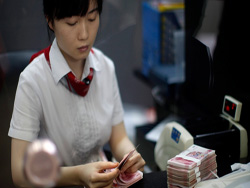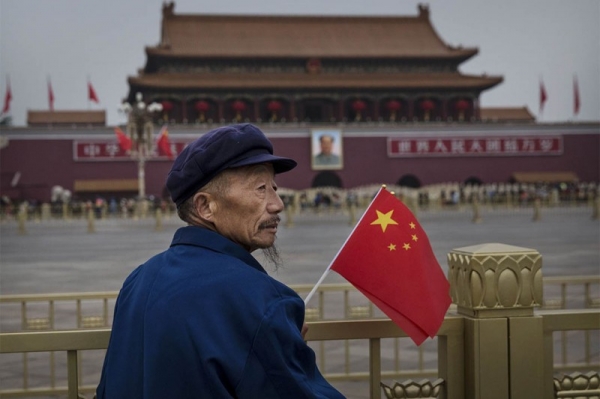
A combination of factors, including slower economic growth and a gradual easing of restrictions on investments abroad, led to a rapid outflow of capital
From the beginning of 2016 over global markets like a sword of Damocles hangs the prospect of a substantial devaluation of the yuan. There is little doubt that in the next decade China will be forced to move to a floating exchange rate. The question is, how the dramatic events that will precede.
It may seem strange that a country with a trade surplus of $600 billion in 2015 concerned about a possible weakening of the currency. However, a combination of factors, including slower economic growth and a gradual easing of restrictions on investments abroad, led to a rapid outflow of capital.
Now Chinese citizens can take out up to $50,000 per year.
If at least one of 20 Chinese will take advantage of this law, foreign-exchange reserves will evaporate.
Rich Chinese companies already actively use all methods of withdrawal. You can, for example, to make loans in Renminbi, and payments to obtain foreign currency.
There are less legal way — put in a fake or inflated invoices. In fact, it is one of the forms of money laundering. For example, a Chinese exporter may be accountable for the sale of goods to the American importer at a price below the real. The difference then secretly placed in a U.S. dollar Bank account (which then can be used, for example, to buy paintings by Picasso).
In addition, Chinese firms have purchased as many American and European companies, which you can withdraw money through corporate payments. This idea can hardly be considered Chinese. After world war II, when a devastated Europe was stifling foreign exchange control, illegal outflow of capital from the continent often exceed 10% of the volume of trade. As the largest participant in world trade, China would strictly limit capital outflows, if the incentive to flee is so strong.
Therefore, despite the huge trade surplus, people’s Bank of China had to pursue an active intervention to maintain the exchange rate. Foreign exchange reserves of the country in 2015 was reduced by $500 billion In low control over the outflow of capital even $3 trillion of reserves is not enough to endlessly defend this fortress. The more people are concerned about the rate, the more they want to withdraw their money from the country. This fear, in turn, contributes to the decline in Chinese stock market.
Some expect that the Chinese will conduct a large-scale one-time devaluation of, say 10%, to reduce the pressure on the exchange rate. However (in addition to flip the wood such as Donald trump, confident that China’s unfair trade) it is very dangerous for the government, who did not quite trust the financial markets. A strong devaluation would be seen as a indicator, indicating a more significant economic slowdown in the country than most people think. In this case, money will continue to leak.
Simple ways to improve communication with the markets will not appear until until China learns to produce economic statistics, trustworthy. A huge uproar was raised by the news that China reported GDP growth of 6.9%, which was only slightly below the official target level of 7%. This difference is not important, but investors considered it important, they believe that things are so bad, if the government is unable to twist the numbers and report on the implementation of the tasks.
A good start for the Chinese authorities would be the establishment of a Commission of economists who will prepare a more realistic GDP data for past years. This would give the possibility to publish data that cause more confidence. Instead, the first idea of the government seeking to ease the pressure on the exchange rate, was the binding of the yuan to a basket of 13 currencies instead of only one US dollar. In theory it’s a good idea; in practice, however, the reference to a basket of currencies, usually leads to chronic problems with transparency.
Moreover, the rate is pegged to a basket of currencies, are characterized by almost the same problems as the rate is pegged to the dollar. Yes, over the past two years the Euro and the yen fell against the dollar. However, if in 2016 the dollar will weaken, then, following a basket of currencies, the yuan begins to strengthen relative to the dollar, and this may not be very useful. In addition, the government stated that it intends to toughen the fight against illegal outflow of capital, but put the Genie back in the bottle will be extremely difficult.
Everything would be much easier if China moved to more flexible exchange rate even when things were going well. Many of us were advised to do this over 10 years ago. It is not excluded that the authorities will be able to keep the situation under control in 2016, but it is more likely that the yuan, along with world markets will continue to shake.








